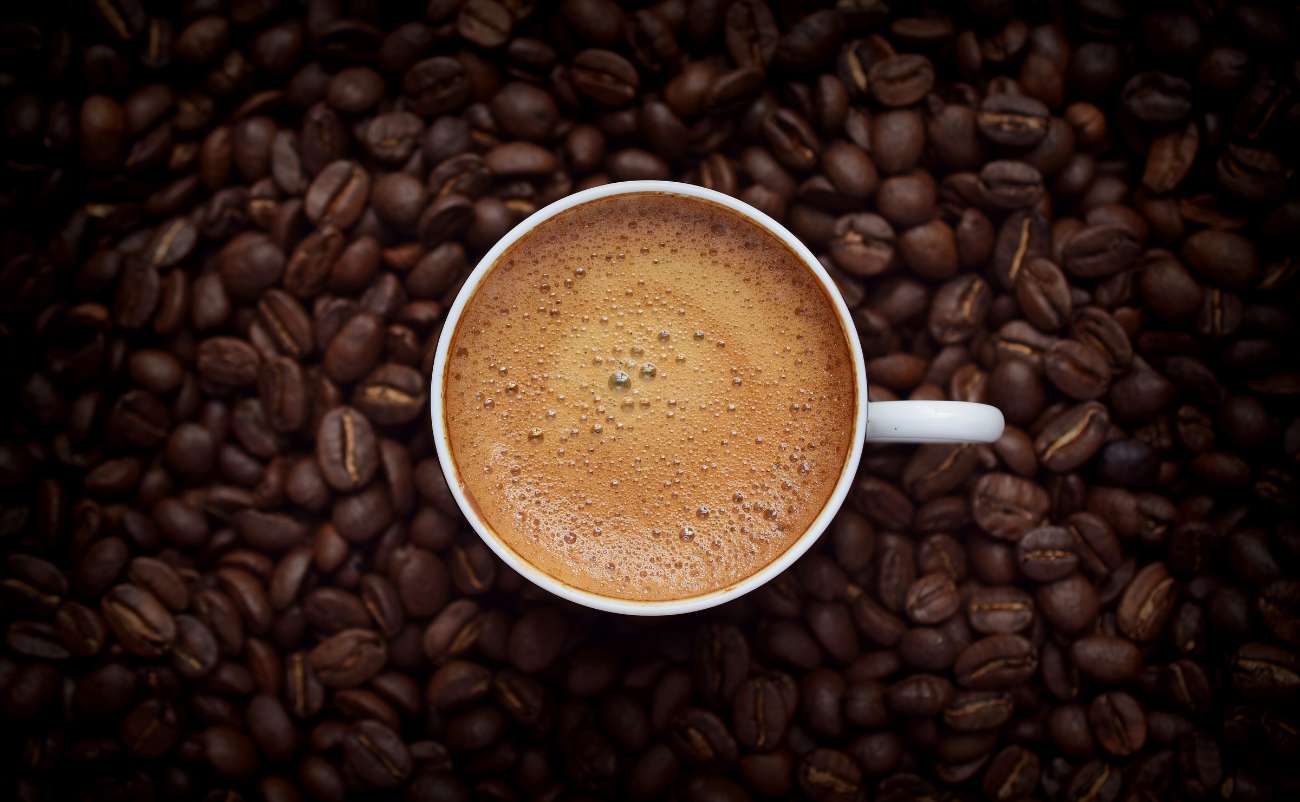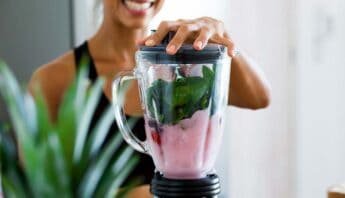
Coffee vs. Tea for Health: Which Brew Is Better?
Which drink is healthier—coffee or tea? The debate on coffee vs. tea for health has been brewing for years.
Both come from plants, both taste great, and both give you a little pick‑me‑up. In this article, we’ll compare their nutrition, benefits, caffeine levels, antioxidants, and risks. By the end, you’ll know which brew fits you best!
Nutritional Profiles: Coffee vs. Tea
Let’s start with the basics. Here’s what you find in a typical 8‑ounce (240 ml) cup, without milk or sugar:
| Nutrient | Coffee (8 oz) | Black Tea (8 oz) | Green Tea (8 oz) |
| Calories | 2 | 2 | 0 |
| Caffeine | 95 mg | 47 mg | 29 mg |
| Protein | 0 g | 0 g | 0 g |
| Fat | 0 g | 0 g | 0 g |
| Sugar | 0 g | 0 g | 0 g |
| Antioxidants | Moderate | High | Very High |
- Coffee has almost no calories or nutrients, but supplies more caffeine.
- Black tea has about half the caffeine of coffee and some antioxidants called theaflavins.
- Green tea has less caffeine but high levels of EGCG, a powerful antioxidant.
Health Benefits of Coffee
Coffee lovers rejoice! Drinking coffee in moderation can be good for you.
- Boosts Energy & Focus
- Caffeine blocks adenosine, a brain chemical that makes you feel tired.
- You feel more awake and alert after a cup.
- May Lower Risk of Some Diseases
- Studies show coffee drinkers have a lower risk of Parkinson’s disease and Alzheimer’s disease (Harvard Health).
- It may reduce the chance of type 2 diabetes.
- Supports Metabolism
- Caffeine can slightly increase your metabolic rate.
- May help with weight management when combined with healthy habits.
- Rich in Antioxidants
- Coffee beans contain chlorogenic acid, which fights cell damage.
🔗 For more on coffee and metabolism, see our guide on healthy beverage swaps.
Health Benefits of Tea
Tea has been sipped for thousands of years for its health perks.
- High in Antioxidants
- Green tea’s EGCG protects cells and may lower cancer risk.
- Black tea’s theaflavins support heart health.
- Heart Health
- Regular tea drinkers often have lower LDL (“bad”) cholesterol.
- May reduce blood pressure slightly.
- Promotes Relaxation
- Contains L‑theanine, an amino acid that calms the mind without drowsiness.
- Supports Digestion
- Herbal teas like peppermint or ginger soothe the stomach.
Caffeine Content: How They Compare
Caffeine affects everyone differently. Here’s a quick comparison:
- Coffee: 80–120 mg per cup
- Black Tea: 40–70 mg per cup
- Green Tea: 20–45 mg per cup
- Decaf Coffee/Tea: 2–5 mg per cup
Why It Matters:
- Too much caffeine can cause jitters, trouble sleeping, or a fast heartbeat.
- If you’re sensitive, green tea or decaf versions may be a better choice.
Check your BMI with the Premium Quality BMI Calculator for Free. Try Now Below.
Impact on Mental Health: Coffee and Tea
Both drinks can affect your mood and focus.
Coffee and Mood
- Short‑term boost: improves alertness and mood.
- Crash risk: if you consume too much, you may feel tired later.
Tea and Mood
- Calming effects: L‑theanine in tea promotes relaxation.
- Balanced energy: lower caffeine plus L‑theanine often leads to gentle, sustained focus.
Practical Tip:
- If you need a quick wake‑up, coffee’s stronger caffeine is ideal.
- If you want calm focus, reach for green tea.
Antioxidants: The Power of Both Brews
Antioxidants help protect your body’s cells from damage.
- Coffee’s Antioxidants: Chlorogenic acid, caffeic acid.
- Tea’s Antioxidants:
- Green Tea: EGCG, catechins.
- Black Tea: Theaflavins, thearubigins.
Studies show both drinks can reduce inflammation and protect against some chronic diseases (Mayo Clinic).
Potential Risks and Side Effects
Too much of anything can be harmful. Here are some risks to watch:
- Caffeine Overload: Insomnia, jitters, fast heartbeat.
- Stomach Upset: Coffee is acidic; tea contains tannins that can upset sensitive tummies.
- Staining Teeth: Both drinks can stain teeth over time.
- Iron Absorption: Tea may reduce iron absorption if consumed with meals.
⚠️ Warning: Pregnant individuals should limit caffeine to under 200 mg per day (about one coffee).
Check How Much Water you should drink with the Premium Quality Water Intake Calculator for Free. Try Now Below.
Personal Preferences: Choosing Your Brew
At the end of the day, the best drink is the one you enjoy and can tolerate well.
- Flavor Preference: Do you like strong, bold flavors (coffee) or mild, earthy ones (tea)?
- Caffeine Needs: Need a strong pick‑me‑up or a gentle lift?
- Health Goals: Looking for metabolism support (coffee) or relaxation and antioxidants (tea)?
- Routine Fit: Do you prefer a quick morning brew or a calming afternoon ritual?
Use this simple quiz to decide:
- If you wake up slowly, Coffee may help jump‑start your day.
- If you feel anxious, try green tea for calm energy.
- If you have acid reflux, Low‑acid coffee or herbal tea could be gentler.
Key Takeaway:
💬 Which brew do you prefer—coffee or tea? Share your pick and why in the comments!
📌 Don’t forget to subscribe for more healthy drink guides, and share this post with your fellow coffee and tea lovers!
FAQs About Coffee vs Tea for Health
Can I drink both coffee and tea each day?
Yes—just watch your total caffeine intake (aim for under 400 mg/day for most adults).
Is green tea healthier than coffee?
Green tea has more antioxidants per cup and less caffeine. Coffee has stronger energy benefits.
Does coffee dehydrate you?
No. Moderate coffee (up to 5 cups) contributes to your daily fluid needs.
What’s the best time to drink tea or coffee?
Have coffee in the morning for a strong boost. Enjoy tea in the afternoon or evening for gentle energy.
Can kids drink tea or coffee?
Children should limit caffeine. Herbal (caffeine‑free) teas are a safer alternative for kids.
In conclusion, making an Informed Choice. When comparing coffee vs. tea for health, both come out as winners in different ways. Coffee offers a stronger energy boost and metabolism support, while tea delivers calm focus and a rich variety of antioxidants.
Your personal taste, caffeine sensitivity, and health goals will guide you to the perfect brew.
Whatever you choose, enjoy it mindfully—avoid adding too much sugar or high‑fat creamers. Sipping slowly and savoring each cup turns a simple drink into a healthy ritual.
Table of Contents

















No Comments